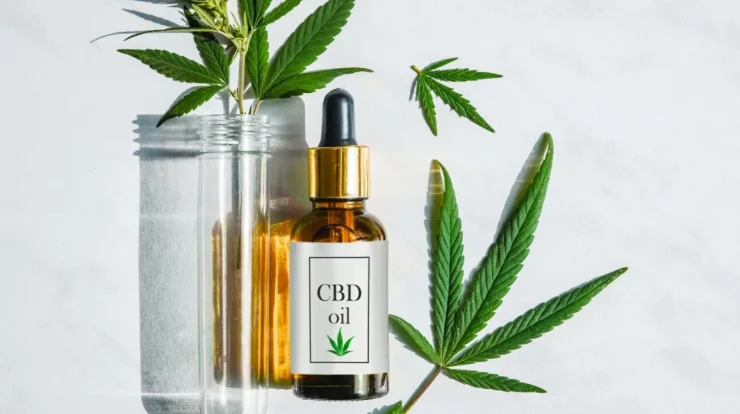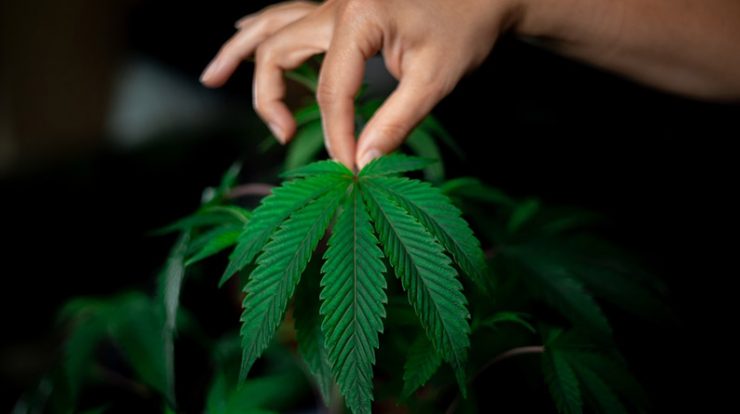
Introduction:
In recent years, Cannabidiol (CBD) oil has gained immense popularity as a natural remedy for various health conditions. Extracted from the cannabis plant, CBD UK oil is renowned for its potential therapeutic benefits without the psychoactive effects associated with its counterpart, tetrahydrocannabinol (THC). This article explores the remarkable potential of CBD oil as the ultimate natural remedy for Britons, delving into its benefits, usage, and considerations for those interested in incorporating it into their wellness routine.
Understanding CBD Oil
CBD oil, also known as cannabidiol oil, is a natural oil derived from the cannabis plant. It contains cannabidiol (CBD), which is one of the many chemical compounds, known as cannabinoids, found in cannabis. Unlike tetrahydrocannabinol (THC), CBD does not produce a psychoactive effect, meaning it doesn’t make you feel “high.”
- CBD oil is typically extracted from hemp plants, a specific variety of cannabis that contains high levels of CBD and very low levels of THC. There are multiple methods used for CBD extraction, but the most common ones include:
- CO2 Extraction: This method uses pressurized carbon dioxide (CO2) to extract CBD from the plant material. CO2 acts as a solvent and helps separate the cannabinoids and other compounds from the plant matter. It is considered a safe and efficient method, resulting in a high-quality CBD oil.
- Solvent Extraction: In this method, a solvent such as ethanol or butane is used to dissolve the CBD and other cannabinoids from the plant material. After extraction, the solvent is evaporated, leaving behind the CBD oil. It’s important to note that this method may leave trace amounts of the solvent in the final product if not properly removed.
- Olive Oil Extraction: This is a simple and safe method that involves heating the plant material and olive oil together. The cannabinoids are extracted into the oil, and then the mixture is filtered. However, CBD oil produced through this method is perishable and has a shorter shelf life compared to other extraction methods.
Health Benefits of CBD Oil
- Pain Management and Inflammation Reduction: CBD oil has been widely recognized for its potential benefits in managing pain and reducing inflammation. Studies have shown that CBD interacts with receptors in the endocannabinoid system, which is involved in regulating pain perception and inflammation in the body. By influencing these receptors, CBD may help alleviate chronic pain conditions such as arthritis, multiple sclerosis, and fibromyalgia. Additionally, CBD’s anti-inflammatory properties may contribute to reducing inflammation in various parts of the body.
- Anxiety and Stress Relief: CBD oil has shown promise in helping to alleviate symptoms of anxiety and stress. It interacts with receptors in the brain that are associated with mood regulation and stress responses. Research suggests that CBD may help reduce anxiety by influencing the levels of serotonin, a neurotransmitter involved in mood regulation. CBD oil has been used by individuals with generalized anxiety disorder, social anxiety disorder, and post-traumatic stress disorder (PTSD) to potentially mitigate anxiety symptoms.
- . Skin Health Enhancement: CBD oil has gained popularity in skincare products due to its potential benefits for skin health. It possesses anti-inflammatory properties and may help manage conditions like acne and psoriasis. CBD oil may also help regulate the production of sebum, the oily substance responsible for acne formation. Furthermore, its antioxidant properties can help protect the skin from environmental damage and promote a youthful appearance. However, more research is necessary to establish the specific mechanisms and long-term effects of CBD oil on skin health.
- Potential for Epilepsy Treatment: One of the most well-established medicinal uses of CBD oil is in the treatment of certain forms of epilepsy. Epidiolex, a CBD-based medication, has been approved by the U.S. Food and Drug Administration (FDA) for the treatment of two rare and severe forms of epilepsy: Lennox-Gastaut syndrome and Dravet syndrome. CBD has shown promise in reducing the frequency and severity of seizures in individuals with these conditions. However, it’s important to note that the use of CBD oil for epilepsy should be done under the guidance of a healthcare professional.
Safe Usage and Considerations
- Research reputable brands: Look for established brands that have a good reputation for producing high-quality CBD oil products. Read customer reviews and check if they provide third-party lab testing results to ensure the product’s quality.
- Check for CBD source: Determine where the CBD used in the product is sourced from. Hemp-derived CBD is legal in many places, while CBD derived from marijuana may have legal restrictions. Ensure the product contains CBD derived from industrial hemp with THC levels below 0.3%.
- Follow product instructions: Different CBD products may have specific dosage instructions based on their concentration and intended use. Follow the recommended dosage guidelines provided by the manufacturer.
- Consider body weight and individual factors: Factors such as body weight, metabolism, and the condition being treated can influence the appropriate dosage. Consulting with a healthcare professional can provide personalized guidance.
- Dry mouth: CBD can reduce saliva production, leading to a dry sensation in the mouth. Stay hydrated and consider using sugar-free lozenges or gum to alleviate this symptom.
- Fatigue and drowsiness: Higher doses of CBD may cause drowsiness or fatigue. If experiencing these side effects, avoid operating heavy machinery or driving until the effects subside.
- Changes in appetite: CBD can affect appetite, causing increased or decreased hunger. Monitor any changes and adjust dietary intake accordingly.
- Consult a healthcare professional: If taking any medications, it’s important to consult a healthcare professional, such as a doctor or pharmacist, before using CBD. They can provide guidance on potential interactions and adjust medication dosages if necessary.
- Consider potential interactions: CBD can inhibit or enhance the effects of certain medications metabolized by the liver’s cytochrome P450 enzyme system. This can affect the medication’s efficacy or increase the risk of side effects. Medications that carry a “grapefruit warning” may also have similar interactions with CBD.
CBD Oil in Daily Life
CBD oil has gained popularity for its potential health benefits, including reducing anxiety, promoting relaxation, relieving pain, and improving sleep. If you’re interested in incorporating CBD oil into your wellness routine, here are some suggestions:
- Determine the right dosage: Start with a low dosage and gradually increase it until you find the optimal amount that works for you. It’s best to consult with a healthcare professional to ensure you’re using the right dosage.
- Choose a reputable CBD oil brand: Look for CBD oil products from trusted manufacturers that provide third-party lab testing to ensure quality and purity.
- Timing and consistency: CBD oil can be taken orally, so consider incorporating it into your daily routine. You may prefer taking it in the morning to promote a calm and focused start to your day, or in the evening to help with relaxation and sleep.
- Experiment with different methods of consumption: CBD oil can be taken sublingually (under the tongue), added to beverages, or mixed with food. Find the method that you find most convenient and effective.
- Observe and adjust: Pay attention to how your body responds to CBD oil. Keep track of any changes in your mood, pain levels, or sleep quality. Adjust the dosage or timing as needed to optimize the effects.
Cooking with CBD Oil:
CBD oil can be a versatile ingredient to incorporate into your cooking. Here are some tips for cooking with CBD oil:
- Choose the right CBD oil: Opt for a high-quality CBD oil that is specifically meant for ingestion. Look for products labeled as “food-grade” or “edible.”
- Temperature considerations: CBD oil is heat sensitive, and high temperatures can degrade its effectiveness. Avoid using it in high-temperature cooking methods like frying. Instead, use it in recipes that require low to medium heat or add it to dishes after they are cooked.
- Start with small doses: When cooking with CBD oil, it’s best to start with small doses and gradually increase as needed. Remember that CBD affects individuals differently, so find the right dosage that works for you.
- Pair with fat: CBD is fat-soluble, so it’s recommended to cook with CBD oil alongside ingredients that contain fat. This helps with absorption and enhances the effectiveness of CBD. Consider using it in recipes that include butter, coconut oil, or olive oil.
- Experiment with flavors: CBD oil has a distinct earthy taste that may not appeal to everyone. To mask the flavor, incorporate it into recipes with strong flavors such as spices, herbs, or citrus fruits.
Conclusion:
CBD UK oil has emerged as a natural remedy with promising potential for Britons seeking alternative solutions for various health concerns. Its therapeutic properties, including pain management, stress relief, and improved sleep quality, make it a versatile option for individuals looking to enhance their overall well-being. However, it’s essential to prioritize safety and educate oneself about quality products, appropriate dosages, and any potential interactions with medications. As more research unfolds, CBD oil continues to solidify its position as the ultimate natural remedy for the health-conscious in Britain, offering a holistic approach to wellness and symptom management.






